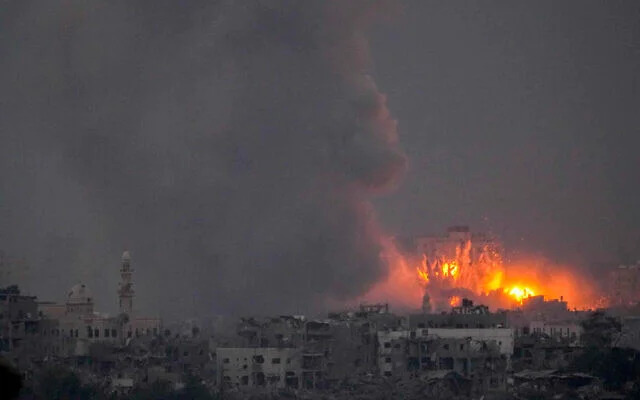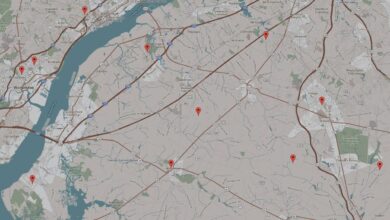The family of an American hostage anxiously awaits news as Israel continues its conflict with Hamas

Omer Neutra’s absence is symbolized by a dog tag worn by his father, bearing a Hebrew inscription declaring that his heart is held captive in Gaza. This heart-wrenching reality is further reflected in Omer’s image adorning his dad’s T-shirt and photos affixed to empty chairs at family gatherings.
His absence permeates his mother’s daily conversations with her missing son and informs her plans for a new apartment, anticipating his return to rebuild his life. It lingers in the candles burned down to the chocolate icing on Omer’s 22nd birthday cake, a celebration without the guest of honor.
For three agonizing months, Ronen and Orna Neutra have been immersed in a relentless quest to secure the release of their son, who, hailing from Long Island, New York, deferred college to spend a transformative year in Israel. His journey led him to the Israeli army, and on October 7, he was seemingly captured by Hamas.
As the three-month milestone of captivity for over 130 hostages approaches, the Neutras express growing concern about their son’s dwindling time amidst stalled negotiations and escalating dangers faced by the hostages.
The prospect of a negotiated deal for the hostages, involving exchanges for Palestinian prisoners, remains entangled in Hamas’ insistence on a comprehensive ceasefire and Israel’s goal of eradicating the group from Gaza. Egypt has proposed a multi-step peace plan, but recent events, such as the killing of a top Hamas leader in Beirut, have complicated the talks.
The Neutras, along with other families, now advocate for a comprehensive deal for all hostages simultaneously, seeking urgency in the resolution. Ronen Neutra emphasizes the inability to wait for the complete dismantling of Hamas or the end of the war to secure their son’s release.
Amid this uncertainty, the couple grapples with painful limbo, lacking any information about Omer’s whereabouts or condition since the Israeli government notified them of his hostage situation. They believe he might be held in the intricate network of tunnels beneath Gaza, where freed hostages reported severe deprivation of food and medical care, coupled with physical and psychological abuse.
Their current reality involves a tireless effort, shuttling between Washington and Tel Aviv, engaging with lawmakers, attending vigils, participating in marches, and raising awareness about their son and the other hostages.
Omer’s story began with promise and patriotism, rooted in the family’s connection to Israel. Born in Manhattan a month after the 9/11 attacks, he grew up on Long Island, actively participating in sports and Jewish day school. Despite being accepted to college, he deferred admission to spend a gap year in Israel, eventually joining the Israeli army’s tank unit.
The night of October 7 marked a turning point for the Neutras when they learned that Omer’s unit had been attacked, leading to his capture. The ensuing weeks brought anxiety, sleepless nights, and a visit from Israeli Embassy officials, confirming the grim reality.
The couple swiftly became advocates, forming the Hostages and Missing Families Forum, participating in rallies, and sharing their son’s story with the world. However, the collapse of a negotiated exchange deal and the resumption of combat further intensified their ordeal.
Despite the challenges, the Neutras draw strength from their community’s support, maintaining Omer’s presence through social media campaigns and public events. They refuse to entertain the thought of not getting him back, holding on to hope, and tirelessly pursuing every avenue for his release.
As calls for a hostage deal grow more urgent, the couple navigates the delicate balance of hope and uncertainty, praying for a resolution that brings Omer and the remaining hostages home. The journey involves political complexities, emotional turmoil, and a steadfast commitment to their son’s return, embodying a poignant narrative of a family caught in the crossfire of geopolitical conflicts.




